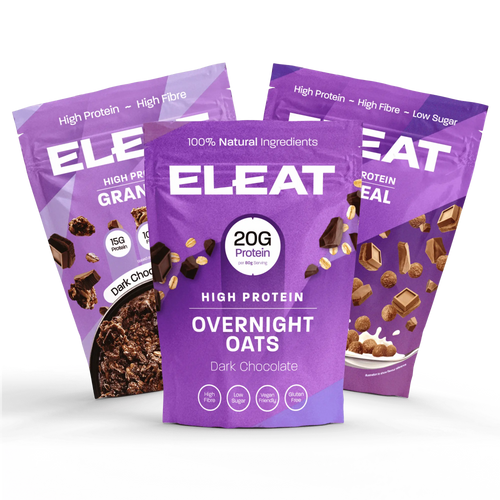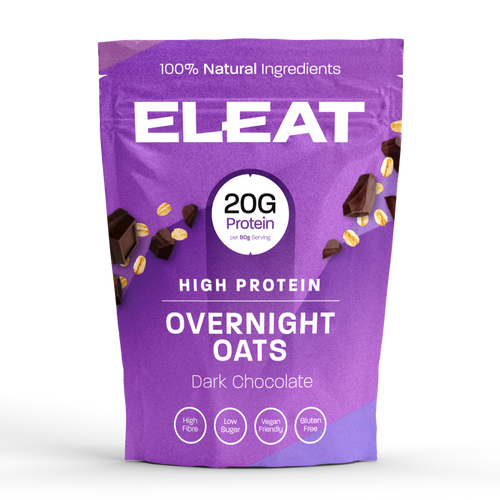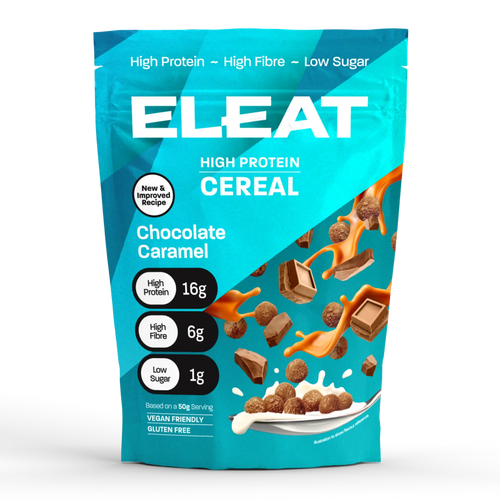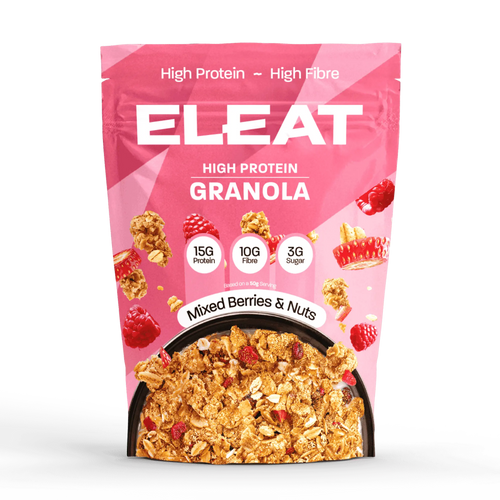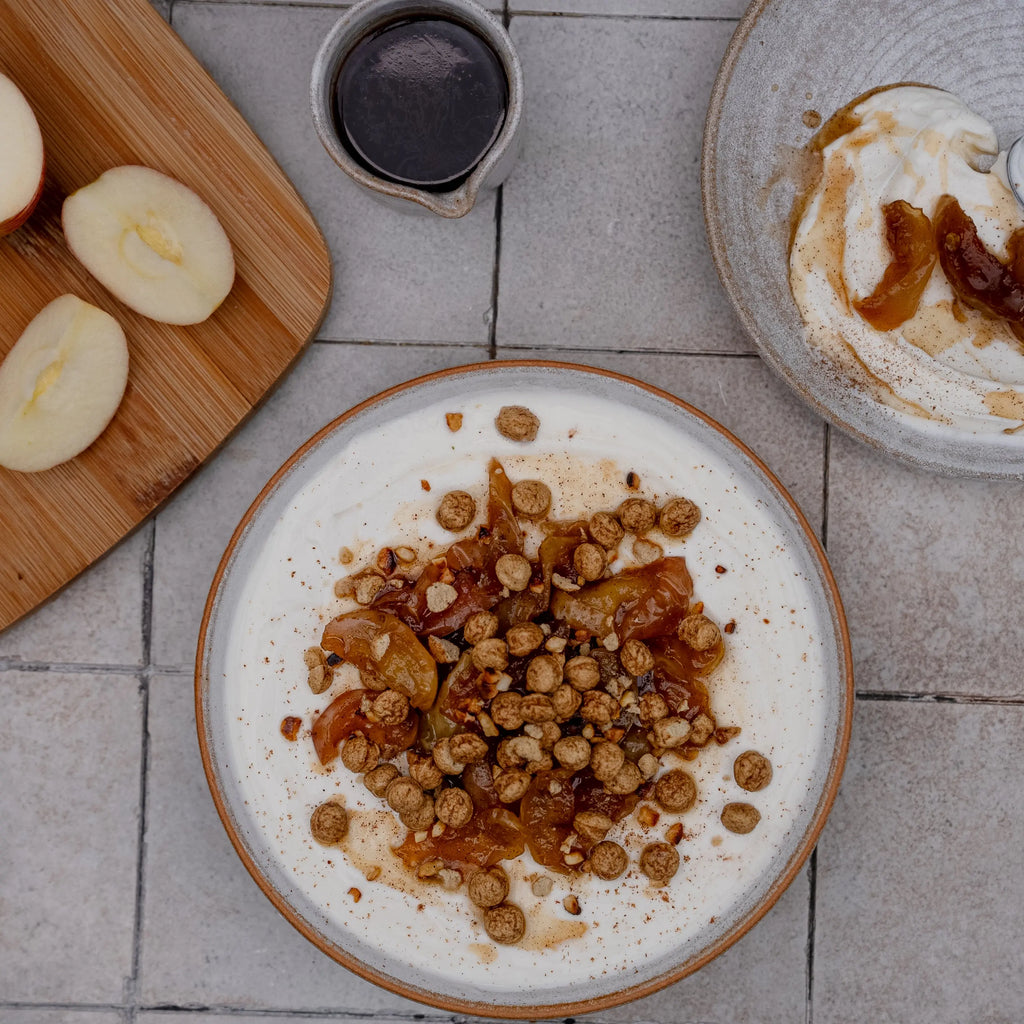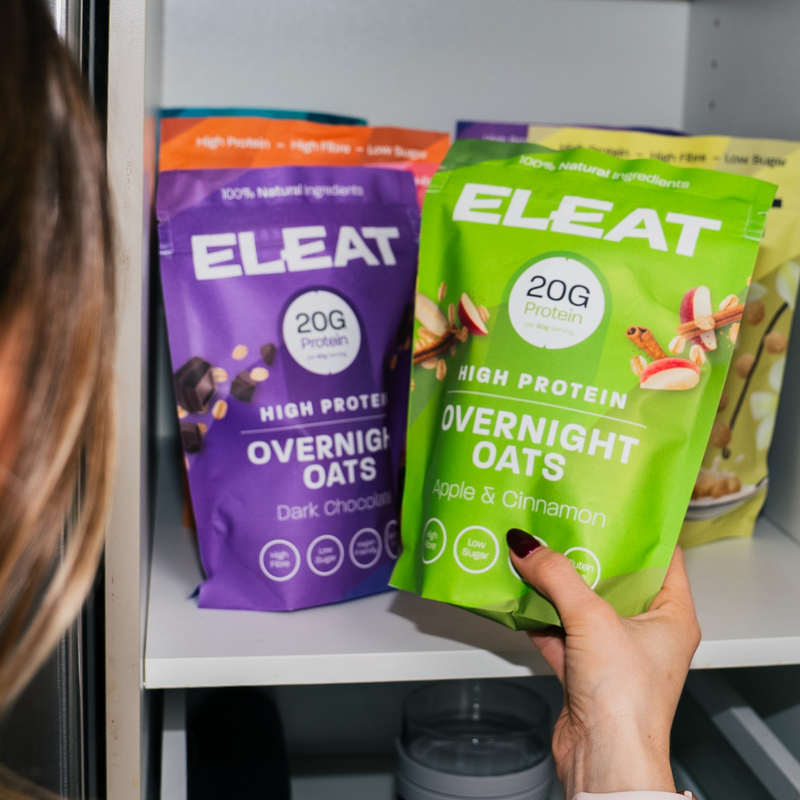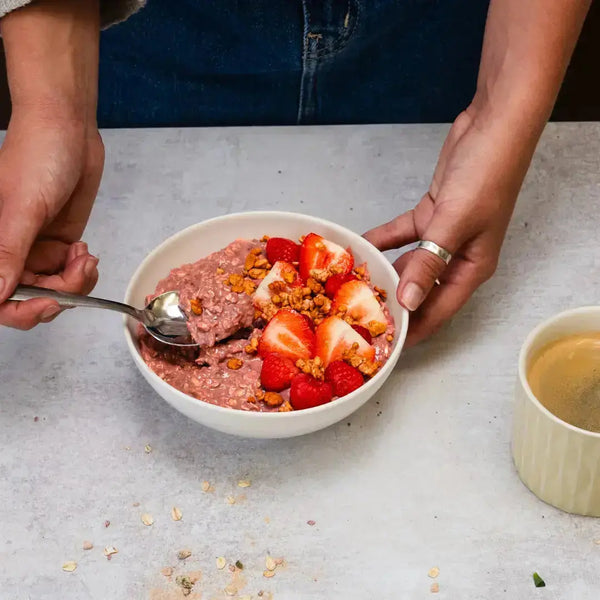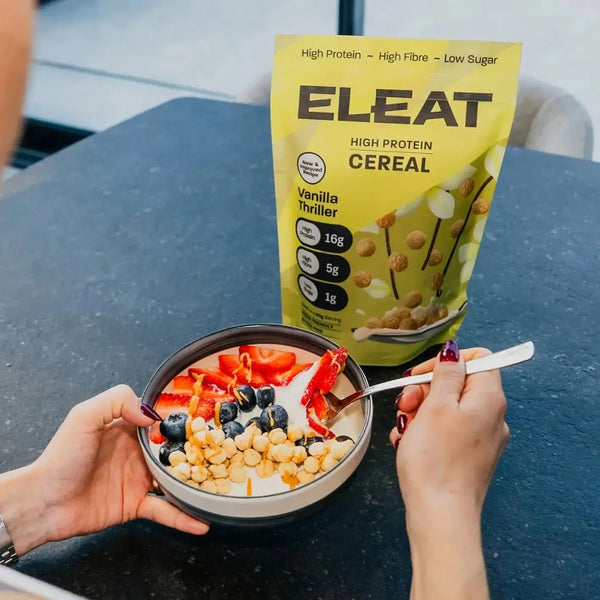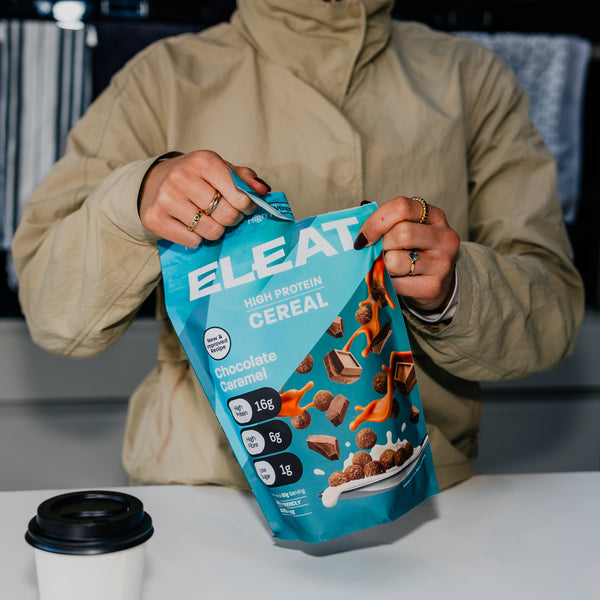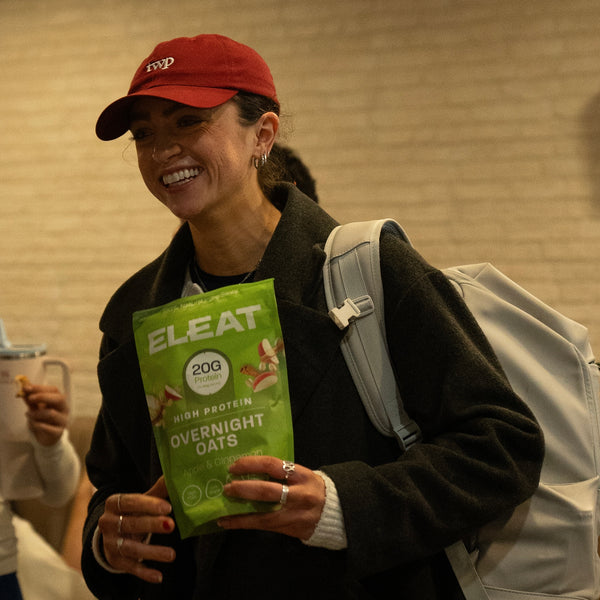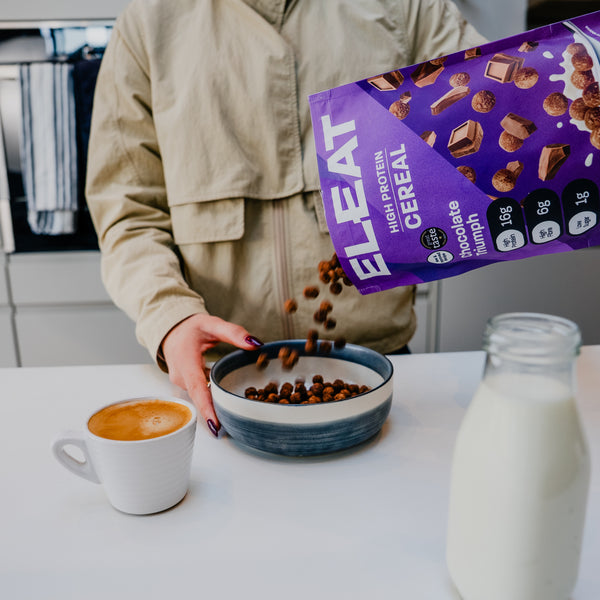In this article:
Breakfast is often touted as the most important meal of the day—and for good reason. The right morning meal can set the tone for your energy levels, focus, and productivity throughout the day. One of the best ways to fuel your morning is by incorporating protein, which helps stabilise blood sugar, keeps hunger at bay, and supports muscle repair. But for those with gluten sensitivities or dietary preferences, finding a gluten-free high-protein breakfast can be challenging.
Fortunately, creating gluten-free, high-protein breakfasts is easier than you think. With a variety of protein-packed ingredients and simple recipes, you can build a nourishing meal that’s both satisfying and delicious. Whether you're looking to avoid gluten for health reasons or simply want to try something new, this guide will show you how to start your day right. In the sections to come, we'll explore the importance of high-protein breakfasts, highlight key gluten-free ingredients, and tips to help you fuel your mornings with ease.
The Importance of High-Protein Breakfasts
Why Protein Matters in the Morning
Starting your day with a high-protein breakfast is more than just a trend; it’s a proven way to keep your energy steady throughout the morning. Protein takes longer to digest than carbohydrates, helping you stay full longer and avoid the mid-morning energy slump. Studies show that consuming 20-30 grams of protein at breakfast not only promotes satiety but also reduces unhealthy snacking later in the day. Moreover, protein helps repair muscle tissue and supports metabolic function, making it essential for both active individuals and those looking to maintain a balanced diet.
Why Go Gluten-Free?
Many traditional breakfast foods—such as toast, muffins, and cereals—contain gluten, which can pose challenges for those with celiac disease or gluten sensitivities. However, even people without these conditions are increasingly choosing gluten-free options to improve digestion or try a cleaner diet. The problem is that many gluten-free substitutes, like gluten-free breads or cereals, tend to be low in protein, which can make it difficult to build a balanced breakfast. By focusing on whole foods and naturally gluten-free ingredients, it’s possible to create a satisfying, protein-rich meal that fuels your body without gluten.
Essential Gluten-Free, High-Protein Breakfast Ingredients
Protein-Rich Gluten-Free Grains and Alternatives
Some of the best gluten-free grains are naturally high in protein, making them perfect for breakfast. Quinoa, for example, contains all nine essential amino acids and packs about 8 grams of protein per cup. Buckwheat and gluten-free oats are also excellent sources of both protein and fibre, helping to keep you full and energised. Chia seeds are another powerhouse, providing a plant-based protein boost along with omega-3 fatty acids and fibre, ideal for making puddings or adding to smoothies.
Non-Grain Protein Sources
Eggs are a breakfast staple for good reason—they're versatile, quick to cook, and packed with about 6 grams of protein each. Greek yoghurt is another excellent option, especially the strained varieties that contain more protein. For those who are lactose-sensitive, cottage cheese or lactose-free versions of yoghurt can provide the same benefits. If you’re looking for plant-based options, consider tofu or tempeh, which can be scrambled or added to veggie-based dishes. Chickpea flour is another gluten-free, protein-rich alternative that works well in savoury pancakes or frittatas.
Nuts, Seeds, and Nut Butters
Almonds, sunflower seeds, and peanut butter are rich in both healthy fats and protein, making them excellent additions to your breakfast. Whether you’re topping your smoothie bowl or adding a spoonful of nut butter to gluten-free toast, these ingredients help balance your meal and provide long-lasting energy.
Protein Powders
For those who need an extra protein boost, gluten-free protein powders—like whey, pea, or hemp protein—are convenient and easy to add to smoothies, pancake batters, or even chia puddings. Just make sure to choose a certified gluten-free brand if you're strictly avoiding gluten.
How to Build a Balanced, Gluten-Free High-Protein Breakfast
Step 1: Choose a Base
Start by selecting a gluten-free base for your breakfast. Options include gluten-free toast, cooked quinoa, oats, or chia pudding. These ingredients can be prepared in advance, saving you time on busy mornings. Quinoa and oats can be cooked in batches and stored in the fridge for easy use throughout the week, while chia pudding can be soaked overnight for a ready-to-eat meal in the morning.
Step 2: Add Protein
Next, add a high-protein element to your base. Eggs, whether scrambled, poached, or hard-boiled, are a great option. Greek yogurt, with its creamy texture and high protein content, works well with oats or as a standalone meal. For plant-based eaters, tofu scramble is a delicious and filling alternative. If you're opting for a smoothie, consider adding a scoop of gluten-free protein powder to ensure you're hitting your protein goals.
Step 3: Include Healthy Fats and Flavour
Healthy fats are essential for long-lasting energy, so be sure to include ingredients like avocados, nuts, seeds, or nut butters in your breakfast. These ingredients not only add nutrition but also enhance the flavour and texture of your meal. For sweetness without excess sugar, consider using natural options like honey or maple syrup, and experiment with spices like cinnamon or nutmeg for added warmth.
Step 4: Add Fruits or Vegetables
For an added nutrient boost, top your meal with fresh fruit or vegetables. Berries, bananas, and apples are great gluten-free fruits that pair well with almost any breakfast. Vegetables like spinach, bell peppers, or tomatoes can be incorporated into omelettes, scrambles, or breakfast bowls to add fibre and vitamins.
Recipe Ideas for Gluten-Free High-Protein Breakfasts
Quinoa Breakfast Bowl
Combine cooked quinoa with a dollop of Greek yoghurt, almond butter, and fresh berries for a breakfast that's both protein-packed and refreshing. The quinoa provides fiber and protein, while the yogurt and almond butter add extra protein and healthy fats.
Veggie and Egg Muffins
Made with eggs, spinach, and gluten-free cheese, these savory muffins can be prepped ahead of time and stored in the fridge for quick, grab-and-go breakfasts. Each muffin is packed with protein, making it a great option for busy mornings.
Protein-Packed Smoothie
Blend almond milk with a handful of spinach, frozen berries, and a scoop of gluten-free protein powder for a refreshing, high-protein smoothie. You can add a tablespoon of chia seeds for extra fiber and omega-3s.
Chia Seed Pudding
Mix chia seeds with almond milk and let them soak overnight to form a creamy, pudding-like consistency. Top with your favorite nuts and fresh fruit for a naturally gluten-free and protein-rich breakfast.
Tips for Sticking to a Gluten-Free High-Protein Breakfast Routine
Meal Prep
Preparing your breakfast ingredients in advance can make mornings much easier. Boil eggs, prepare chia pudding, or bake a batch of veggie muffins to ensure you have quick, protein-rich options ready to go.
Variety
Eating the same breakfast every day can get monotonous, so switch up your ingredients and recipes to keep things exciting. Try different combinations of gluten-free grains, proteins, and toppings to prevent boredom and keep your breakfast fresh and enjoyable.
Mindful Snacking
A high-protein, gluten-free breakfast can help curb your appetite and reduce the urge to snack mid-morning. By starting your day with a balanced meal, you’re more likely to maintain steady energy levels and make healthier choices throughout the day.
Conclusion
Incorporating a gluten-free, high-protein breakfast into your routine is a smart and simple way to fuel your mornings. Protein not only helps stabilise your energy levels and curbs mid-morning hunger, but also supports muscle repair and overall metabolic function. By choosing naturally gluten-free, protein-rich ingredients like quinoa, eggs, nuts, and seeds, you can create delicious and balanced meals that leave you feeling satisfied and energised.
Whether you prefer savoury veggie muffins, creamy chia pudding, or refreshing protein-packed smoothies, the options are endless. Meal prep and variety are key to sticking with your new routine, ensuring you always have a quick, nutritious breakfast ready to go. Starting your day with a high-protein, gluten-free breakfast is not just a trend—it’s a lifestyle choice that can improve your energy, focus, and well-being throughout the day.
